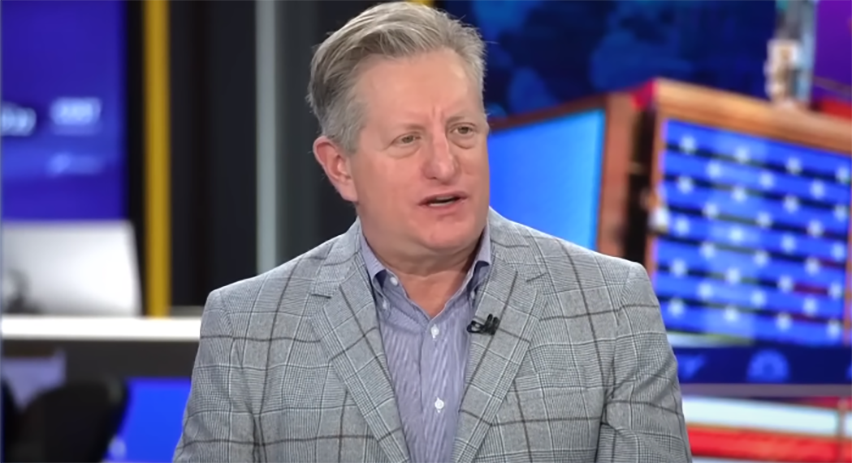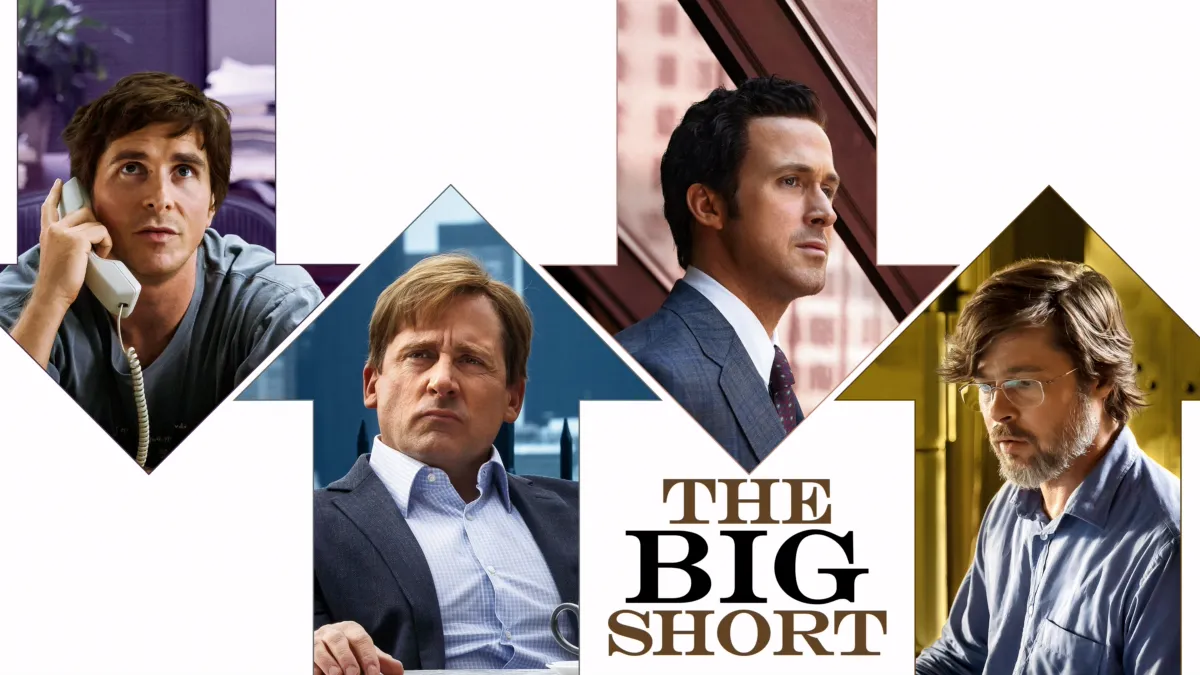Everything About Mark Baum From The Big Short
- 1 Did someone really give Mark Baum ideas?
- 2 Could you tell me about Steve Eisman?
- 2.1 Looking into the Differences Between Making Money and Being Moral
- 2.2 What happened and how it affected the banking sector
- 2.3 These are the Big Short Nets $100 million to Michael Burry.
- 2.4 Due to the collapse of the housing market, the real Mark Baum made $1 billion.
- 2.5 The real Jared Vennett made $47 million through deals.
- 2.6 Baum’s Crusade and What It Meant for Society
- 2.7 A more in-depth look at crisis and masculinity
- 2.8 What We Know and What We Leave Behind
- 2.9 Here are some of the things Steve Eisman has done since “The Big Short.”
- 2.10 As Steve Eisman, played by Steve Carrell in The Big Short, how true to life is he?
- 3 Conclusion
Mark Baum is a complex symbol of rebellion against the widespread immorality and waste in the banking industry. Based on the life and work of Steve Eisman, his character is a harsh attack on the greed and lack of vision that led to the financial collapse of 2007–2008. This part tries to build on Baum’s moral and philosophical stand during the crisis by looking at what he did in the context of the bigger picture and how people in and outside of finance responded to it.
Did someone really give Mark Baum ideas?
Steve Eisman, who asked that his name be changed for the movie, came up with the real-world idea for Mark Baum. Eisman was in charge of more than $1 billion worth of assets at Morgan Stanley’s trust fund FrontPoint Partners LLC, which has its main office in Greenwich, Connecticut. FrontPoint Partners bet against subprime mortgages during the 2007–2008 financial disaster.
Could you tell me about Steve Eisman?

Eisman grew up in New York City and got his B.A. from the University of Pennsylvania. His next step was to go to Harvard Law School. He used to work for Chilton Investment Co. as a managing director and a financial services analyst in the past. After that, things went well when he got a job at Oppenheimer & Co. as an analyst for investment banking, asset management, and speciality finance.
Looking into the Differences Between Making Money and Being Moral
Mark Baum’s life shows how to be wise with money and think deeply about what is right and wrong. Baum (and, by extension, Eisman) walked a fine line between trying to make money off of the financial collapse he saw coming and telling people and companies about the disaster he saw coming. There are severe moral worries about his ability to see what will happen and take advantage of it. Someone needed to make money off of a disaster that hurt so many people, didn’t they? Baum’s story forces us to face the disturbing truths of capitalism and the moral ambiguities that come with risky investment strategies.
What happened and how it affected the banking sector
People had a wide range of reactions to Baum and Eisman’s harsh criticisms of the banking industry, especially their bets against the subprime mortgage market. They went from admiration to anger to thought. Because of what they did, the industry’s investing processes and governmental oversight were looked at again. Still, people had different thoughts. Some doubters called them cynical and took advantage of the situation, saying that getting money off of other people’s pain is always wrong.
These are the Big Short Nets $100 million to Michael Burry.
Michael Burry, the main character in The Big Short, was an investor and hedge fund manager who saw the U.S. housing market crash coming a few years before it happened. After looking at the subprime loans that had a lot of risk, he realized the market wasn’t stable. Burry put his money where his mouth was and bet on his prediction by short-selling market-based mortgage-backed securities. Burry made a fortune of $100 million for himself and $725 million for his investors through Scion Capital, according to Vanity Fair. His idea came true.
Burry closed down the hedge fund soon after the crash because it had a bad reputation; the IRS was auditing it, and he wanted to look for other investment possibilities. Burry made real-life purchases after “The Big Short,” even though Scion Capital was no longer open. Only a few years after the housing market crash did he reopen his hedge fund as Scion Asset Management. In August 2023, the trading company bought $866 million worth of put options against an S&P 500 tracking fund and $739 million worth of put options against a Nasdaq 100 tracking fund. This was done because Burry said there would be another stock market crash. So, Burry is still making money, even though people didn’t like him after the financial collapse of the 2000s.
Due to the collapse of the housing market, the real Mark Baum made $1 billion.
In “The Big Short,” Steve Carell played Mark Baum. Baum is based on Steve Eisman, even though his name was changed for the movie. Eisman is famous for making money when the U.S. housing bubble burst in the late 2000s by shorting collateralized debt obligations while running a hedge fund for FrontPoint Partners, a small trading company. Historic Cornwall and the movie both say that Eisman and his team made $1 billion from the market drop. It’s unclear how much Eisman took home, but he clearly made a lot of money.
The real Jared Vennett made $47 million through deals.
Ryan Gosling played Jared Vennett, a different name, in The Big Short. Greg Lippmann, who ran hedge funds and handled trading in asset-backed securities around the world for Deutsche Bank, was Vennett’s real-life model. When he learned about Michael Burry’s strong idea, he chose to sell swaps. Like Lippmann, he was betting that the housing market would crash. As we saw near the end of The Big Short, he made $47 million from the swaps.
Baum’s Crusade and What It Meant for Society
Baum’s story has changed how people think about the financial sector, as shown in The Big Short and other places. The movie and its main character have helped more people understand the economic crisis by making what was once a complex and complicated subject more understandable. This has started meaningful conversations about accountability, watchfulness, and the moral duties of people working in the financial sector (Evening Standard).
A more in-depth look at crisis and masculinity
Mark Baum’s story explores more profound ideas about what it means to be a man in the financial world. It suggests that the disaster was caused in part by a toxic culture of violent male competition and careless risk-taking. This perspective examines how gender roles and cultural ideas about what it means to be a man can make systemic problems worse in fields controlled by men (Evening Standard).
What We Know and What We Leave Behind
Mark Baum’s impact is still being talked about and thought about because he was both a symbol of criticism and participation in the financial crisis. His experience shows both how important it is to stay morally alert when there are chances to make money and how dangerous it is to be too greedy. Additionally, it isn’t easy to understand how someone can act morally when the system often encourages the opposite. Baum’s character makes us think about the moral and world effects of the money choices we make.
Here are some of the things Steve Eisman has done since “The Big Short.”
Eisman left FrontPoint Partners in 2011 and launched Emrys Partners the following year with $23 million he had raised. The fund didn’t do well, though, so he closed it in 2014. After that, he quickly rose through the ranks to become managing director and senior portfolio manager for the Eisman Group at Neuberger Berman’s Private Asset Management business.
As Steve Eisman, played by Steve Carrell in The Big Short, how true to life is he?
How much does Steve Carrell look like Steve Eisman, even though Mark Baum is his role? One thing that he does that comes through in the movie is being rude.
A woman who plays Cynthia in The Big Short and is married to Eisman said, “Even on Wall Street, people think he’s rude, annoying, and aggressive.” Marisa Tomei played the part.
Mark Baum told the person on the phone to go back to the area and politely tell the people who were evaluating the risks to leave.
Hey Vinny, When Daniel walked into the room, he said, “This is Mark Baum telling you to “f**k off,” and I just had a conversation with him.“
Conclusion
In the end, Mark Baum’s and Steve Eisman’s characters’ similarities show the moral and ethical problems that people working in the financial sector face during its most unstable time. Their story is a potent reminder of how important it is to be honest, have a clear vision, and be brave enough to question accepted norms, even if it means making personal sacrifices. Their confusing and contradictory history should make us question the values that our banks and the people who work for them uphold.

















